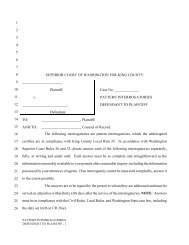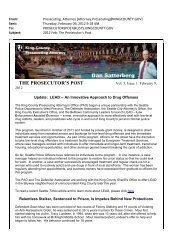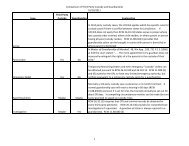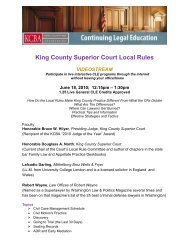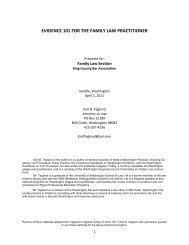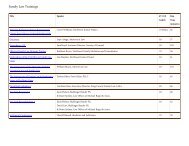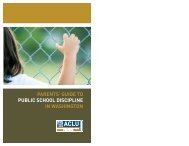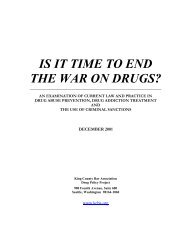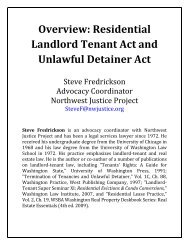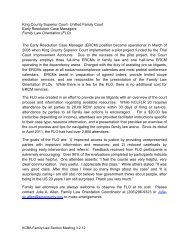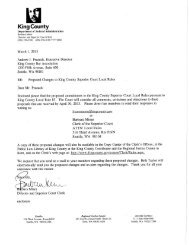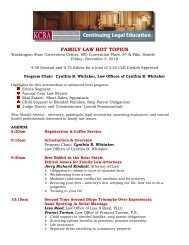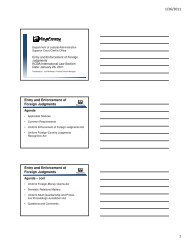Effective Drug Control: Toward A New Legal Framework
Effective Drug Control: Toward A New Legal Framework
Effective Drug Control: Toward A New Legal Framework
Create successful ePaper yourself
Turn your PDF publications into a flip-book with our unique Google optimized e-Paper software.
Further, the King County Bar Association recognized the breadth of federal drug<br />
law as a major impediment to any fundamental and meaningful drug policy reform and<br />
asserted that federal law should permit the states to develop their own drug control<br />
strategies and structures, using the following principles to guide such state-level efforts:<br />
1) Any public policy toward drug use should seek to result in no more harm than<br />
the use of the drugs themselves;<br />
2) Any public policy toward drug use should address the underlying causes and<br />
the resulting harms of drug abuse instead of attempting to discourage drug use<br />
through the imposition of criminal sanctions;<br />
3) The state should regulate the use of drugs in a manner that recognizes<br />
citizens’ individual liberties while answering the need to preserve public<br />
health, public safety and public order, especially providing compassionate<br />
treatment to those in need; and<br />
4) The state should regulate the use of drugs in a manner that uses scarce public<br />
resources as efficiently as possible.<br />
The King County Bar Association has established a growing coalition of legal,<br />
medical, civic and religious groups supporting drug policy reform, engaging over a dozen<br />
task forces and working groups composed of scores of participants, including lawyers,<br />
judges, doctors, pharmacists, law enforcement officers, health care professionals, drug<br />
treatment specialists, scholars and educators. A principal effort for more than three years<br />
was developing the parameters of an alternative legal framework for drug control to<br />
address more effectively the problems arising from the sale and use of prohibited<br />
psychoactive substances, especially the problems arising from the operation of the illegal<br />
markets in which such substances are exclusively produced and distributed.<br />
As a result of its intensive study, the King County Bar Association recommended<br />
the consideration of a state-level system of regulatory control over those psychoactive<br />
substances that are currently produced and distributed exclusively in illegal markets. The<br />
main purposes of such a state-level regulatory system would be:<br />
1) to render the illegal markets for psychoactive substances unprofitable, thereby<br />
eliminating the incentives for criminal enterprises to engage in the violent,<br />
illegal drug trade;<br />
2) to restrict access to psychoactive substances by young persons much more<br />
effectively than the current drug control scheme; and<br />
3) to open many new gateways to treatment so as to provide prompt health care<br />
and essential services to persons suffering from drug addiction.<br />
These goals conform to the principal objectives established at the outset of the<br />
King County Bar Association’s overall examination of drug policy – reducing crime,<br />
improving health, protecting children and saving public resources.<br />
The King County Bar Association and its coalition partners did not propose<br />
specific statutory changes and did not presume to set forth every detail of a state-level<br />
regulatory system for controlling psychoactive substances. Rather, the coalition called on<br />
the Washington State Legislature to authorize a special consultative body, composed of



